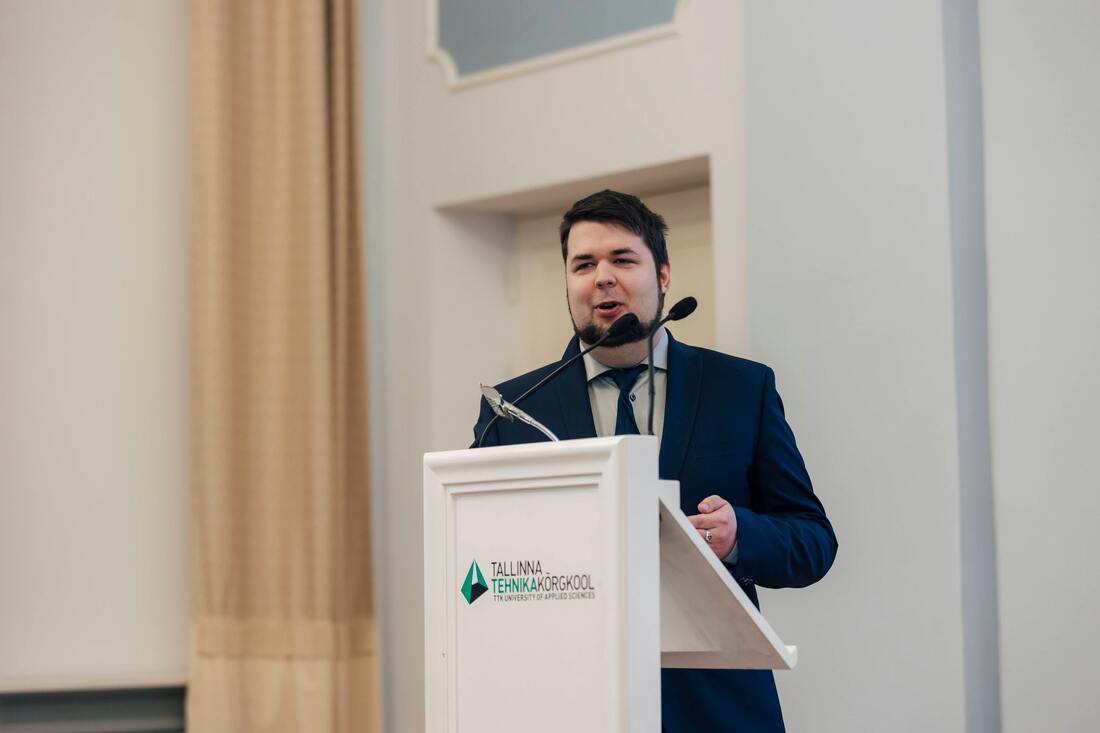NEWS |
 Generated with AI. Generated with AI. Darja Lavõgina and her student Mattias Kaspar Krõlov together with collaborators have described a novel drug candidate that could potentially help against aggressive brain tumors, such as glioblastoma. The compound targets and inhibits the enzyme PRMT5, which has increased activity in glioblastoma. The article was published in Scientific Reports and a short summary in Estonian is available here. Two of our female research fellows Maris-Johanna Tahk and Anni Allikalt gave interviews about their scientific careers to celebrate "Women in Science". Maris said that she enjoys the variety in scientific work - sometimes there are practical sessions or lectures, other days involve conducting laboratory experiments and analyzing data, and finally, writing articles. This allows her to evolve in various ways. Anni particularly enjoys how fascinating scientific research is - in biochemistry, there is so much that is still unknown, and solving these puzzles could prove highly beneficial in medicine. She also said that she greatly appreciates analyzing and discussing experimental results with other scientists. Often, individuals with different backgrounds offer new and exciting perspectives that one might not think of immediately.
The Estonian version can be found here: In 2023, the national competition "Science to Wikipedia" was held and Darja was awarded one of the main prizes for her contributions. She wrote several scientific articles in Estonian intended for a general audience. For example, you can now read about: * FRET * Fluorescence quenching * Lipinski's rule of five The quenching of quinine fluorescence by chloride ions. Tonic (right), Tonic + table salt (NaCl, left). Excitation wavelength 411 nm, emission wavelength ~470 nm. Photo from Wikipedia.
 Prof. Ago Rinken gave an interview in Estonian telling the story of his scientific journey. He also explained his research topic and why G protein-coupled receptor research is so vital. Importantly, he also talked about learning and teaching chemistry and emphasized that in order to understande chemistry one does not have to memorize facts like in History, rather "it is necessary to understand the inner logic of Chemistry". We a proud to announce that Tõnis Laasfeld received the main prize of the 2023 National Research Competition for his doctoral thesis titled "Integrating Image Analysis and Quantitative Modeling for a Holistic View of GPCR Ligand Binding Dynamics". You can read more about the research Tõnis is doing here. The winning doctoral thesis can be found here. Photo by Edmond Mäll.
 Our researchers Darja Lavõgina and Prof. Ago Rinken contributed to publishing a book "Rakubioloogia" ("Cell Biology") by Sulev Kuuse and Toivo Maimets. The book helps Estonian students to better comprehend the text as they can learn in their native language. Our workgroup members were responsible for the chapter on signal transduction and also helped with the chapter about cell organelles. The web version of the book was available in 2018 and has been already used for teaching. Now, the updated and improved paperback is published as well. The web version is available here and the paperback can be bought from the University of Tartu. |

